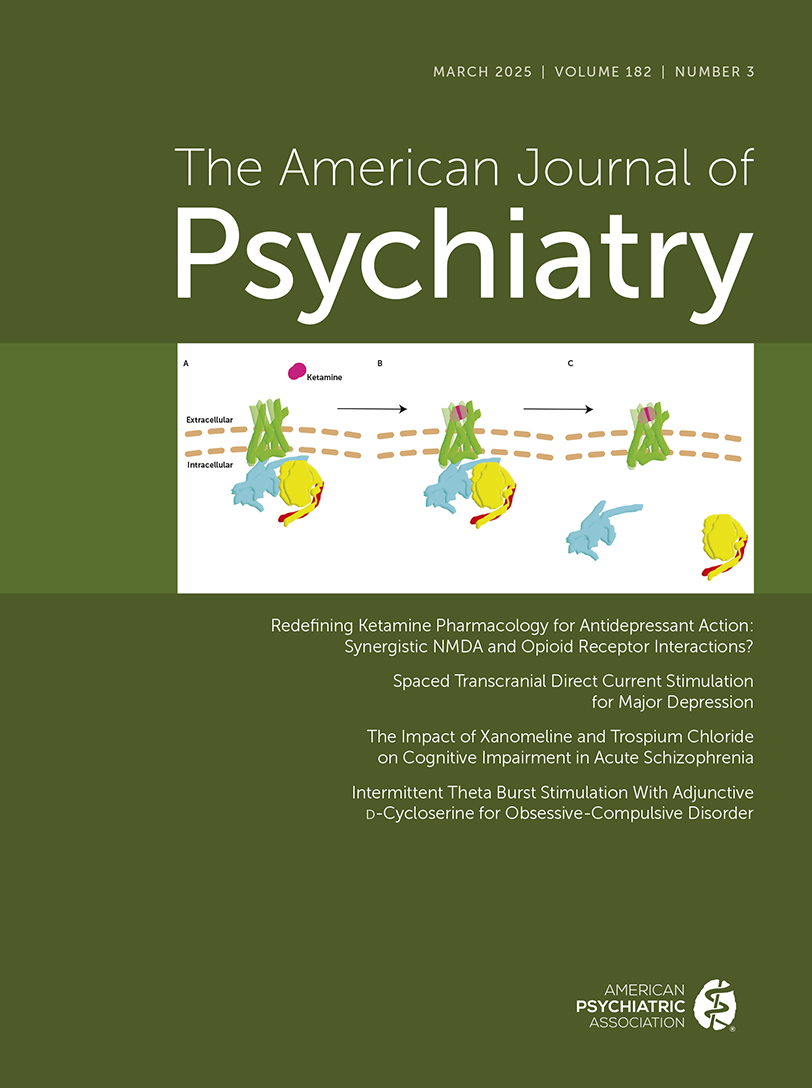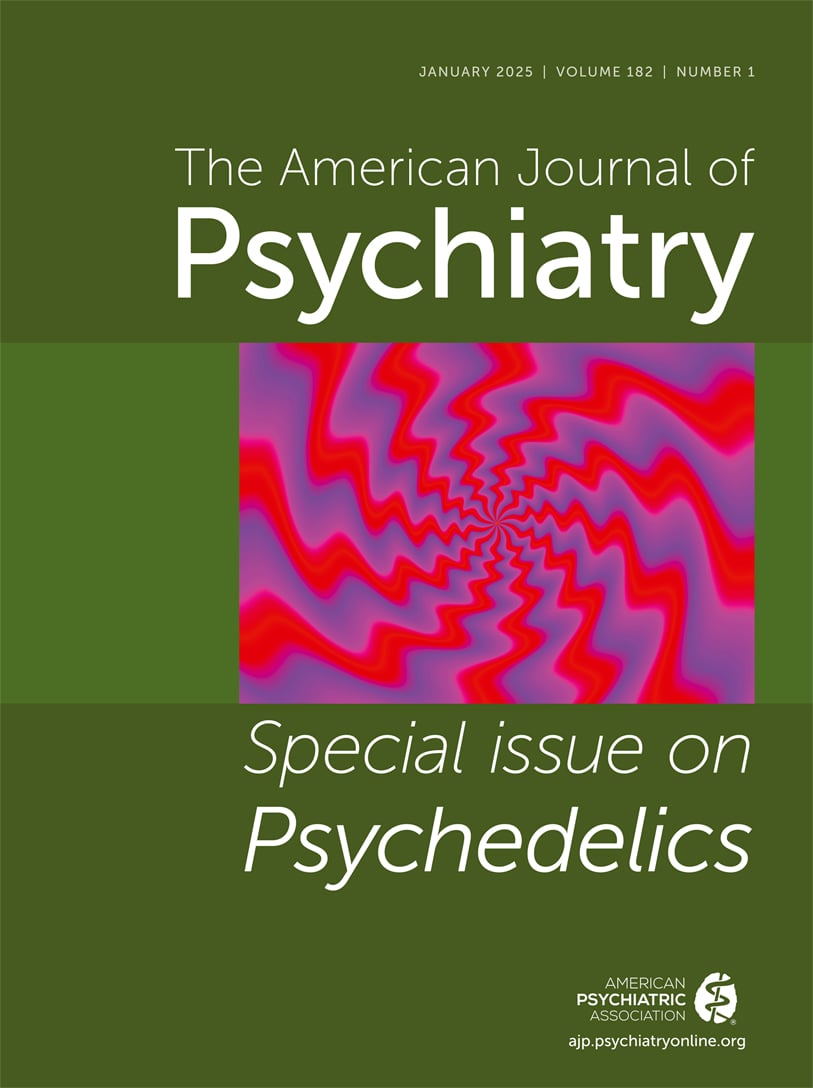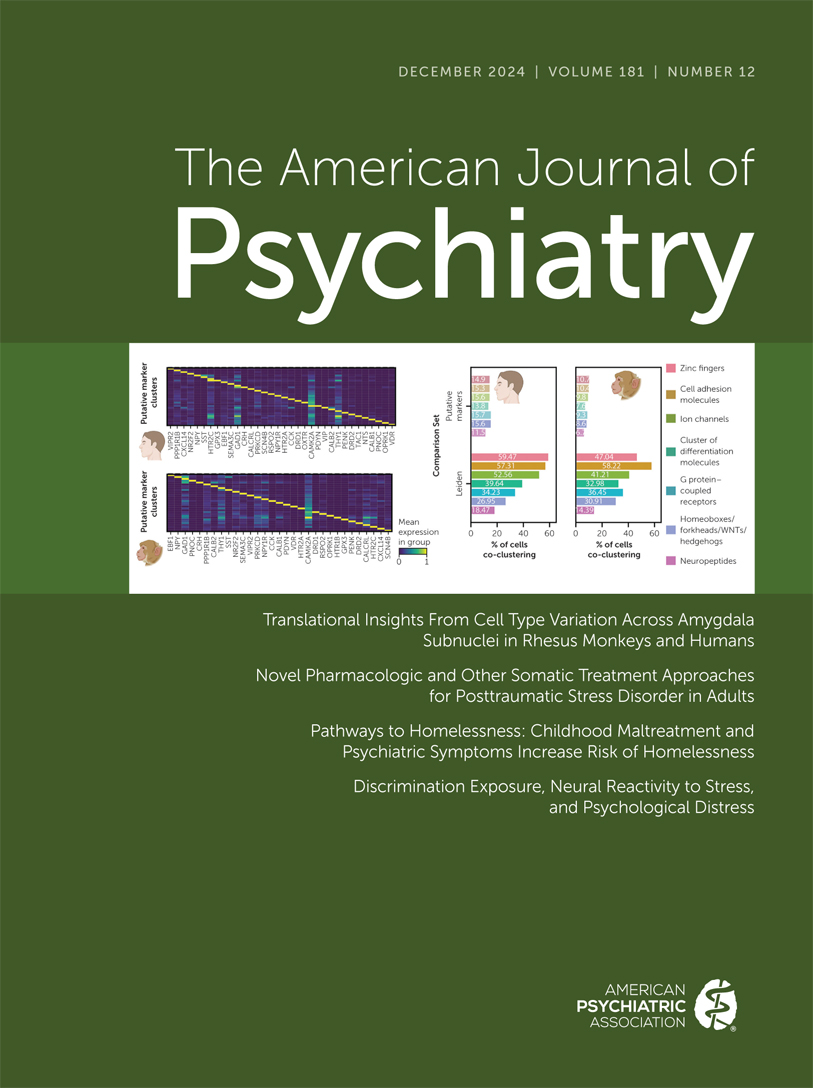American Journal of Psychiatry
- Volume 176
- Number 2
- February 2019
Editor’s Note
Editorials
Perspectives in Global Mental Health
Articles
Publication date: 03 October 2018
Pages98–106Objective: Alcohol and cannabis misuse are related to impaired cognition. When inferring causality, four nonexclusive theoretical models can account for this association: 1) a common underlying vulnerability model; 2) a neuroplasticity model in which ...
https://doi.org/10.1176/appi.ajp.2018.18020202Publication date: 19 October 2018
Pages107–118Objective: Alcohol use disorders are common conditions that have enormous social and economic consequences. Genome-wide association analyses were performed to identify genetic variants associated with a proxy measure of alcohol consumption and alcohol ...
https://doi.org/10.1176/appi.ajp.2018.18040369Publication date: 19 October 2018
Pages119–128Objective: Although lower brain volume has been routinely observed in individuals with substance dependence compared with nondependent control subjects, the brain regions exhibiting lower volume have not been consistent across studies. In addition, it is ...
https://doi.org/10.1176/appi.ajp.2018.17040415Publication date: 19 October 2018
Pages129–137Objective: The oral formulation of the opioid antagonist naltrexone has shown limited effectiveness for treatment of opioid use disorder due to poor adherence. Long-acting injection naltrexone (XR-naltrexone), administered monthly, circumvents the need for ...
https://doi.org/10.1176/appi.ajp.2018.17070732Publication date: 29 November 2018
Pages138–145Objective: The authors sought to clarify the etiology of the association between pregnancy and reduced risk of alcohol use disorder. Methods: The authors used data from longitudinal population-wide Swedish medical, pharmacy, and criminal registries to ...
https://doi.org/10.1176/appi.ajp.2018.18050632Publication date: 11 December 2018
Pages146–155Objective: Psychosocial stress is a key risk factor for substance abuse among adolescents. Recently, epigenetic processes such as DNA methylation have emerged as potential mechanisms that could mediate this relationship. The authors conducted a genome-wide ...
https://doi.org/10.1176/appi.ajp.2018.17121360Publication date: 04 January 2019
Pages156–164Objective: The authors sought to identify a brain-based predictor of cocaine abstinence by using connectome-based predictive modeling (CPM), a recently developed machine learning approach. CPM is a predictive tool and a method of identifying networks that ...
https://doi.org/10.1176/appi.ajp.2018.17101147Letters to the Editor
Past Issues
View Issues Archive
Vol. 182 | No. 3

Vol. 182 | No. 2

Vol. 182 | No. 1
